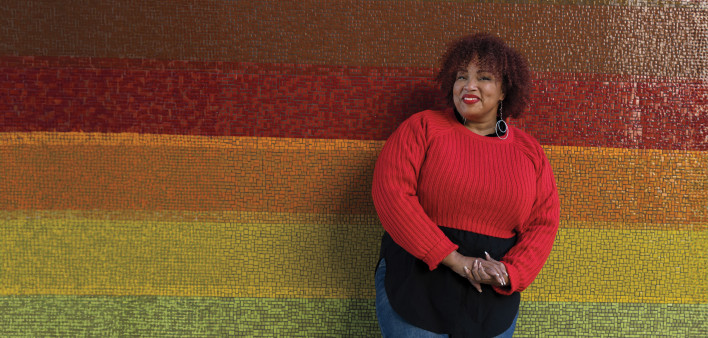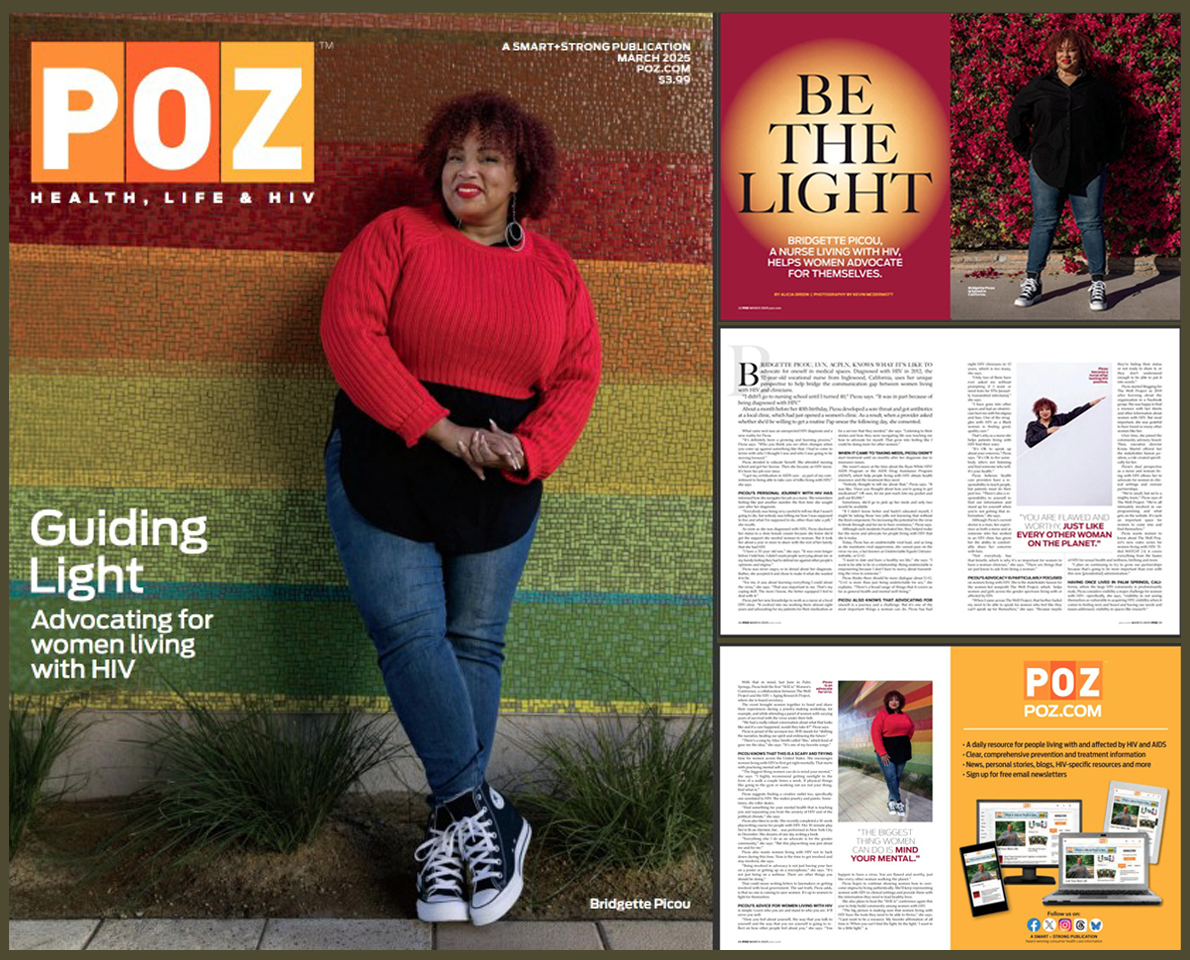
February 10, 2025 – POZ.
by Alicia Green
Bridgette Picou, a nurse living with HIV, helps women advocate for themselves.
Bridgette Picou, LVN, ACPLN, knows what it's like to advocate for oneself in medical spaces. Diagnosed with HIV in 2012, the 52-year-old vocational nurse from Inglewood, California, uses her unique perspective to help bridge the communication gap between women living with HIV and clinicians.
"I didn't go to nursing school until I turned 40," Picou says. "It was in part because of being diagnosed with HIV."
About a month before her 40th birthday, Picou developed a sore throat and got antibiotics at a local clinic, which had just opened a women's clinic. As a result, when a provider asked whether she'd be willing to get a routine Pap smear the following day, she consented.
What came next was an unexpected HIV diagnosis and a new reality for Picou.
"It's definitely been a growing and learning process," Picou says. "Who you think you are often changes when you come up against something like that. I had to come to terms with who I thought I was and who I was going to be moving forward."
Picou decided to educate herself. She attended nursing school and got her license. Then she became an HIV nurse. It's been her job ever since.
"I got my certification in AIDS care…as part of my commitment to being able to take care of folks living with HIV," she says.
Picou's personal journey with HIV has informed how she navigates her job as a nurse. She remembers feeling like just another number the first time she sought care after her diagnosis.
"Everybody was being very careful to tell me that I wasn't going to die, but nobody was telling me how I was supposed to live and what I'm supposed to do, other than take a pill," she recalls.
As soon as she was diagnosed with HIV, Picou disclosed her status to a close female cousin because she knew she'd get the support she needed woman-to-woman. But it took her about a year or more to share with the rest of her family that she had HIV.
"I have a 33-year-old son," she says. "It was even longer before I told him. I didn't want people worrying about me or my family feeling they had to defend me against other people's opinions and stigma."
Picou was never angry or in denial about her diagnosis. Rather, she accepted it and chose to make it what she wanted it to be.
"For me, it was about learning everything I could about the virus," she says. "That was important to me. That's my coping skill. The more I know, the better equipped I feel to deal with it."
Picou put her new knowledge to work as a nurse at a local HIV clinic. "It evolved into me working there almost eight years and advocating for my patients for their medication or for a service that they needed," she says. "Listening to their stories and how they were navigating life was teaching me how to advocate for myself. That grew into feeling like I could be doing more for other women."
When it came to taking meds, Picou didn't start treatment until six months after her diagnosis due to insurance issues.
She wasn't aware at the time about the Ryan White HIV/AIDS Program or the AIDS Drug Assistance Program (ADAP), which help people living with HIV obtain health insurance and the treatment they need.
"Nobody thought to tell me about that," Picou says. "It was like, 'Have you thought about how you're going to get medication?' Oh sure, let me just reach into my pocket and pull out $3,000."
Sometimes, she'd go to pick up her meds and only two would be available.
"If I didn't know better and hadn't educated myself, I might be taking those two pills not knowing that without the third component, I'm increasing the potential for the virus to break through and for me to have resistance," Picou says.
Although such incidents frustrated her, they helped make her the nurse and advocate for people living with HIV that she is today. Continue reading on POZ...
Read the full magazine by clicking the images below





